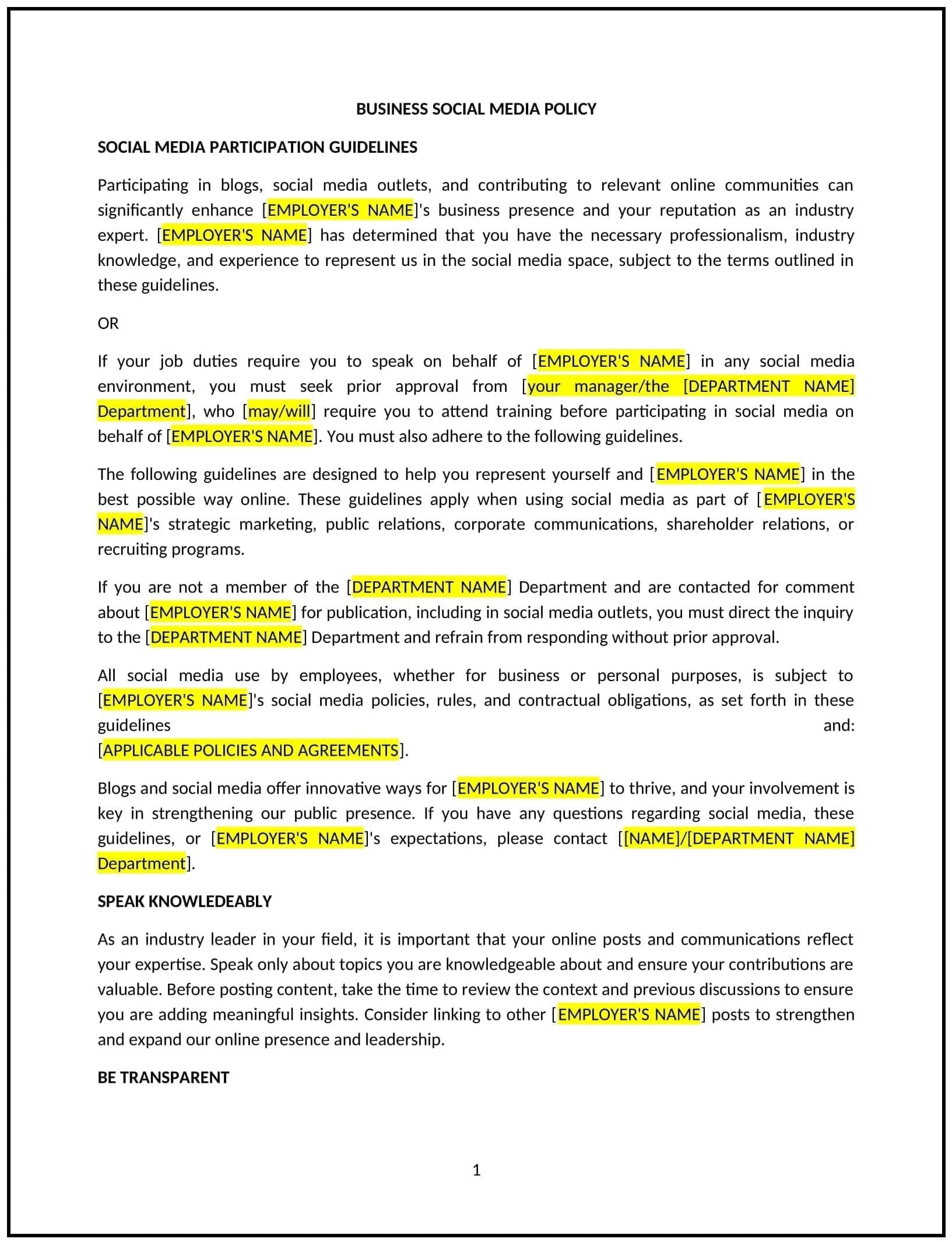Business social media policy (Pennsylvania): Free template
Got contracts to review? While you're here for policies, let Cobrief make contract review effortless—start your free review now.

Customize this template for free
Business social media policy (Pennsylvania)
This business social media policy is designed to help businesses in Pennsylvania set clear guidelines for employees’ use of social media in a professional context. Whether addressing employee engagement, brand representation, or personal use that impacts the workplace, this template helps manage social media practices while protecting the company’s reputation and aligning with Pennsylvania and federal regulations.
By using this template, businesses can encourage responsible social media usage, protect sensitive information, and maintain a consistent online presence.
How to use this business social media policy (Pennsylvania)
- Define acceptable use: Specify the types of social media activity permitted during work hours and how employees can represent the business online.
- Address personal accounts: Clarify boundaries for employees posting about the company on personal social media accounts, including disclaimers when expressing personal opinions.
- Protect confidential information: Include guidelines to prevent the sharing of sensitive company data, intellectual property, or customer information on social media.
- Establish consequences: Detail the steps the business will take if employees violate the policy, ensuring they comply with Pennsylvania labor laws.
- Reflect Pennsylvania-specific considerations: Tailor the policy to address state-specific industries and social media regulations, such as considerations for local businesses or public-facing organizations.
Benefits of using a business social media policy (Pennsylvania)
A well-structured business social media policy supports professionalism and brand integrity. Here's how it helps:
- Protects company reputation: Establishes clear guidelines for online behavior to safeguard the business’s public image.
- Encourages professionalism: Promotes responsible use of social media that aligns with the company’s values and goals.
- Protects confidential information: Reduces risks of data breaches or leaks through clear employee guidelines.
- Supports compliance: Aligns with Pennsylvania labor laws and federal regulations to manage social media use lawfully.
- Enhances employee clarity: Provides clear expectations, minimizing misunderstandings about appropriate social media practices.
Tips for using a business social media policy (Pennsylvania)
- Communicate expectations: Share the policy with employees during onboarding and provide ongoing reminders to ensure compliance and understanding.
- Train employees: Offer training on responsible social media use, including identifying potential risks and protecting company information.
- Monitor activity: Establish procedures for monitoring business-related social media activity to ensure compliance with the policy.
- Encourage engagement: Provide guidance for employees who manage company social media accounts to maintain a professional and consistent tone.
- Review periodically: Update the policy to reflect changes in Pennsylvania labor laws, social media trends, or organizational practices.